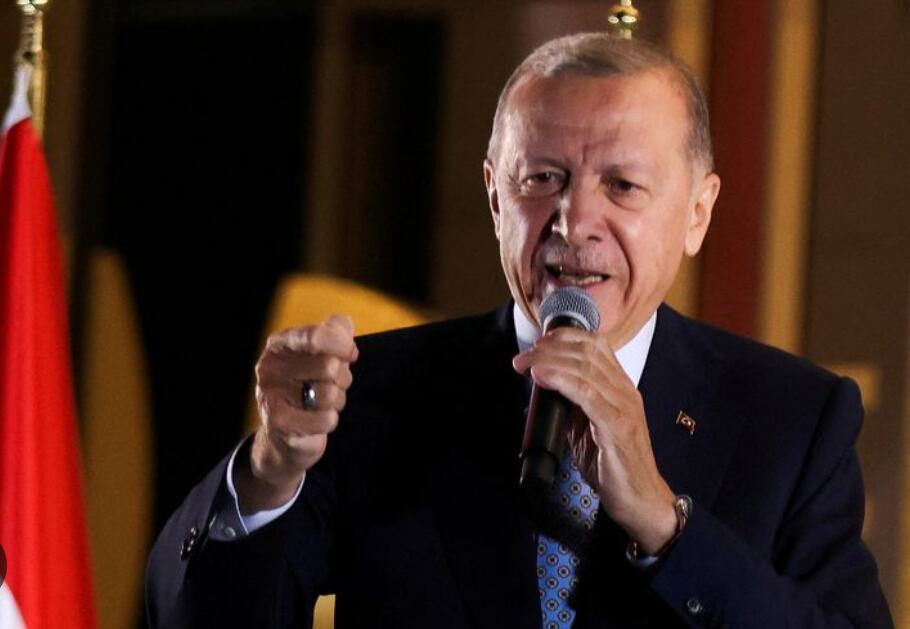Open to Meeting with Assad, but Turkey's Withdrawal from Syria Unlikely says Erdogan
Turkish President Erdogan expresses willingness to meet Syrian President Assad, but maintains that Turkish withdrawal from Syria is unlikely due to ongoing threats and the presence of Kurdish units. Efforts are being made to address the issue through proposals such as a joint military coordination mechanism. Discussions among key stakeholders are ongoing.
In a recent press conference, Turkish President Recep Tayyip Erdogan expressed his willingness to meet with Syrian President Bashar al-Assad, despite the ongoing stalemate in the Syrian-Turkish rapprochement process.
However, Erdogan made it clear that the condition set by Damascus for the Turkish withdrawal from Syria is unlikely to be met. During his visit to Saudi Arabia as part of his Gulf tour, Erdogan revealed that communication channels with the Syrian side are still open and operational through the quadripartite mechanism.
He even mentioned the possibility of a meeting with President Assad. However, Erdogan emphasized that the withdrawal of Turkish forces from Syria, as demanded by Damascus, is not feasible, citing the presence of Kurdish units near the Turkish border and ongoing threats to Turkey.
Erdogan argued that fairness should be considered and that a fair approach must be found before addressing and resolving all related issues. Since the beginning of the Syrian-Turkish rapprochement path, President Assad has made it clear that any meeting with Erdogan is contingent upon Turkey committing to a complete withdrawal from Syrian territory, ceasing support for terrorism, and restoring the situation to pre-war conditions.
According to Assad, a meeting between the two leaders would only hold significance if these conditions are met and if it can yield definitive results for the Syrian conflict. Amid the impasse in the Syrian-Turkish rapprochement process, discussions among key stakeholders, including Russia, Syria, Turkey, and Iran, have been taking place regarding a "road map to advance the path of reconciliation."
Alexander Lavrentyev, the Russian President's Special Envoy to Syria, confirmed this development after the Astana 20 talks. Efforts to bridge their differences have led to proposals to address the contentious issue of Turkish withdrawal from Syria.
Leaked information suggests that Ankara has put forward a suggestion of establishing a joint military coordination mechanism during the talks. This mechanism would facilitate collaborative operations against centers of terrorism and would involve representatives from each country.
More details on this proposal are expected to emerge in subsequent meetings. Abdel Bari Atwan, the editor-in-chief of Rai al-Youm newspaper, previously disclosed a meeting with President Assad and shed light on the ongoing developments in the Syrian-Turkish rapprochement path.
Atwan revealed that understandings have been reached and emphasized the forthcoming withdrawal from Syrian territory. This withdrawal is expected to pave the way for an improvement in bilateral relations, based on the Adana Agreement of 1998, which previously regulated relations between the two countries.




